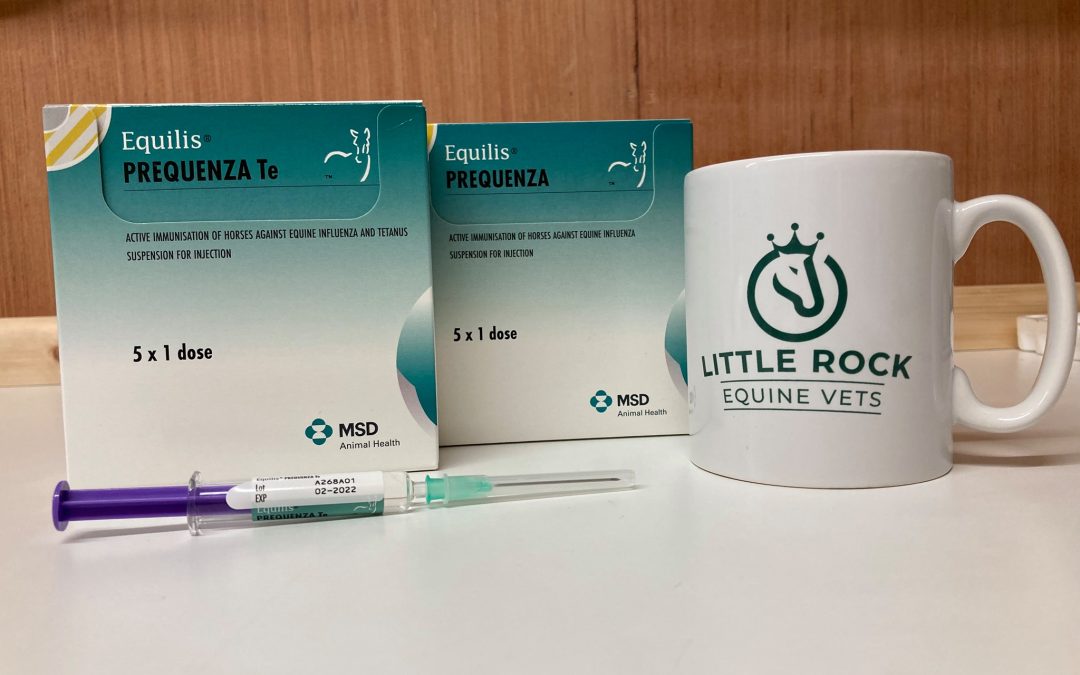Routine vaccinations allow us to take our horses out and about safely. There are diseases that we can’t easily vaccinate for (strangles) and therefore when out and about mixing with horses from different yards it is important to maintain biosecurity to ensure you don’t come back with any other nasty surprises.
Currently we advise vaccination for flu every 6 months to ensure that the antibody levels are kept high. This is in line with the changes that are coming through in 2023, in the racing industry. This will have an impact on those who compete at race venues such as Aintree (pony club, showing and show jumping). You will have to ensure you comply with these rule changes. Unless you specify different requirements, we will as standard place you on 6 monthly reminders. This means that it is an extra helping hand to ensure you stay up to date if you are out competing.
There are two main diseases we vaccinate our horses with to give them the protection they need, to prevent them from increasing the risk of needing a vet.
Equine Influenza:
This is a viral respiratory disease. It is very infectious. It can travel up to 5K from the yard it has presented on in the right weather conditions.
Clinical signs include:
- Temperature (above 39 degree’s centigrade)
- Cough
- Nasal discharge
- Inappetence
- Lethargy
Flu in an unvaccinated horse not only makes them unwell but can have further knock on effects to their bodies such as;
- Serious immunosuppression and therefore a lot of time of riden work
- Recovery time: a week off for every day they have a temperature. This is to ensure no long term health effects.
- Secondary bacterial infections occur in the respiratory tract which require antibiotics.
The virus adapts regularly (a little like the human flu disease) which is why regular vaccination is vital. The vaccine is regularly updated to ensure the maximum protection is given to horses. Certain competition venues have more regular vaccination requirements. It is important that you know what they need to ensure you don’t get turned away at the door.
Tetanus:
Tetanus is a bacterial infection caused by Clostridium Tetani. We see at least two cases a year in unvaccinated horses in this part of the world. The most common history that an owner gives us is a foot abscess or cut to the lower part of the leg a couple of weeks previous to the clinical signs occurring.
Clinical signs include:
- Severe muscle spasms,
- Animal seems very stiff when moving
- Can’t move it’s facial muscles/unable to eat or drink (lock jaw)
- Sensitive to noise, wide staring/panicked look in the eye
To an owner, this can appear like the horse is struggling to eat, walking with a stiff gait, colicking and hunched up
Once the clinical signs of tetanus appear it is incredibly difficult (and expensive) to treat. The majority of cases that develop clinical signs have to be euthanised even after intensive medical intervention/hospitalisation. The fatality rate is upwards of 80%
Other vaccinations:
Equine Herpes Vaccination: Equine Herpes is required for sending mares to stud and for horses competing in Europe.
Prevention is far better than cure. If you want to discuss this further with ourselves feel free to get in contact.

